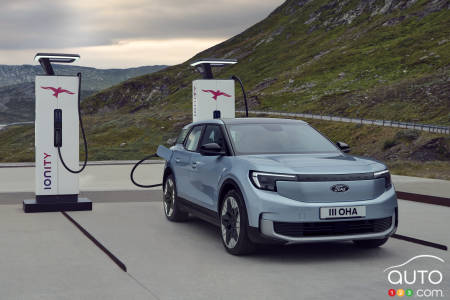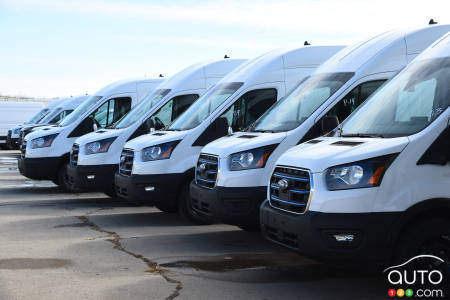Up until now, Ford's stated plans for Europe will bring it to offer an all-electric lineup as of 2030. Like some other automakers this year, the company is rethinking its targets, this as the rate of growth in sales of all-electric models there has slowed.
Let’s be clear. A slowdown in demand does not necessarily mean that sales are declining. It's the rate of growth that's slowing down in many places, compared with what it was, or was expected to be this year.
What’s more, it’s worth keeping in mind how quickly things can change. If affordable EVs enter the market, if range continues to increase with new innovations, and/. or if gas prices skyrocket once again, everything can change.
We're living in a period of transition, and it's difficult to predict everything with any degree of accuracy.
It's against this backdrop that Ford is revising its 2021 target for Europe. The plan, we should note, is more ambitious than the requirements of the European Union, which is calling for all-electric new-vehicle lineups by 2035.
Ford now says it could continue to sell gas-powered vehicles after 2030 if buyers so wish. “If we see strong demand, for instance for plug-in hybrid vehicles, we will offer them,” said Martin Sander, head of Ford's European car division.
“There is a clear trajectory towards electrification,” added the executive. “We just have to manage our way towards 100 percent electric drivetrains,” he told the Financial Times' Future of the Car summit this week.

Ford is not slowing its electrification efforts otherwise. Automotive News, which reported the news, reminds us that Ford has invested $2 billion to convert its Cologne plant in Germany to assemble fully electric vehicles on the Volkswagen Group's MEB platform. Production of the all-electric Explorer compact SUV is due to start in June, while a second vehicle built on the platform will be unveiled in June.
Later this year, Ford will also unveil the electric version of the Puma subcompact SUV, which is manufactured in Krakow, Romania. The company has also launched sales of its one-ton electric Transit in Turkey, despite slower-than-expected adoption of electric vans.
The wheel is turning, and the company is not about to back down, it's important to point out.
Finally, there's another reality to consider: the penalties that could come in some markets if requirements aren’t met. In the U.K., Ford's most important European market, the company is seeking to avoid fines that could affect it if it doesn't sell a certain percentage of electric vehicles. The standard is 22 percent for 2024.

Ford will instead limit the sale of gasoline-powered vehicles there in order to comply with the rules, rather than flooding the market with electric vehicles that would end up being sold at a loss.
As you can see, it's all a question of balance.
The transition must be made, but in a context where profitability is assured. Ford has lost $130,000 USD per electric vehicle sold in North America in 2023 to date, including all the investments required for the shift. Fortunately, its other divisions are turning a profit.
No doubt the same calculation applies to the European market.



